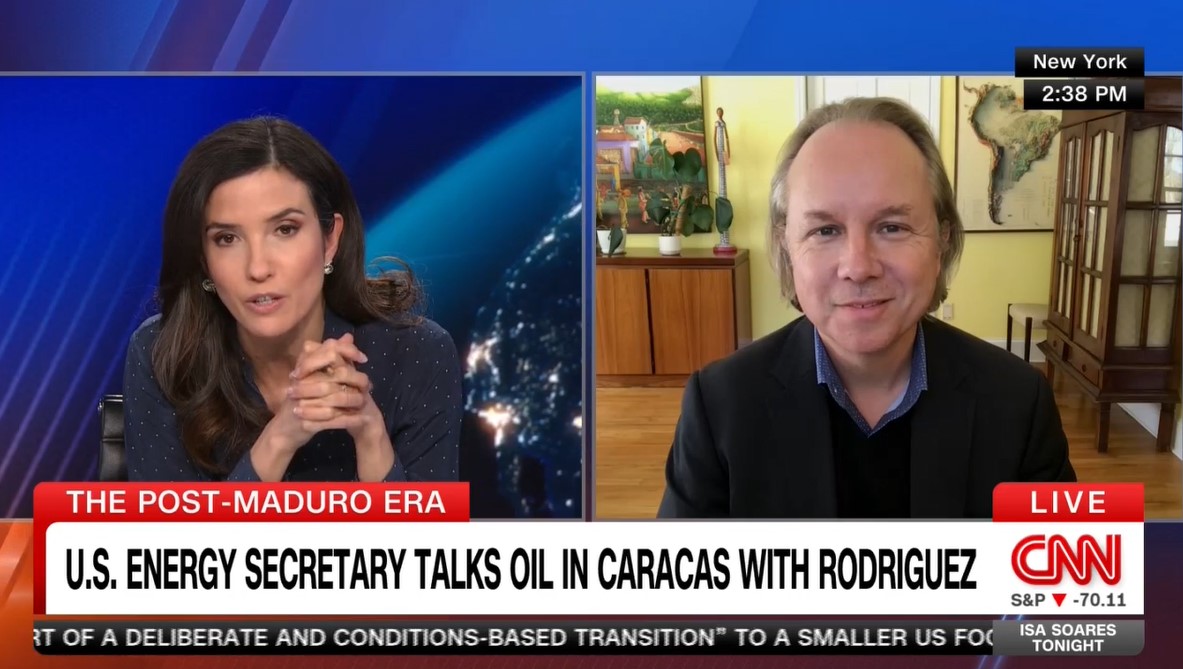New Data Shows Immigration Added $3.7 Trillion to U.S. Housing Wealth
New Data Shows Immigration Added $3.7 Trillion to U.S. Housing Wealth
A newly released study by AS/COA and the Partnership for a New American Economy shows immigrants revitalize declining communities by bolstering the U.S. housing market.
Analysis of U.S. Census data by Americas Society/Council of the Americas and the Partnership for a New American Economy finds that immigration helped stabilize communities where home prices declined
New York, June 20, 2013—Americas Society/Council of the Americas and the Partnership for a New American Economy released new data today from the U.S. Census showing that the 40 million immigrants in the United States have collectively created $3.7 trillion in U.S. housing wealth. The data was released in conjunction with an interactive map tracking the extent to which immigration has impacted the housing market in every zip code of the United States.
The map and data show that immigrants have stabilized communities facing declining or potentially declining home values, often attracting the native-born to move into these areas. The data show that for every 1,000 immigrants settling in a county, 250 U.S.-born individuals follow, likely drawn by the increased economic opportunities created by immigrants.
The data was compiled by Professor Jacob Vigdor of Duke University as part of a larger report on community revitalization that AS/COA and Partnership for a New American Economy will release later this summer.
"At a crucial time for our economy and our housing market, immigration is helping support housing values, revitalize neighborhoods, and add trillions of dollars to U.S. housing wealth," said Partnership for a New American Economy Co-Chair and New York City Mayor Michael R. Bloomberg. "This is just another example of how immigration helps our economy and why we must reform our system so that immigrants can continue contributing to industries that are critical to America's future."
"We already know that immigrants help to start new businesses and create jobs, and with this research we are uncovering the many contributions of immigrants to the health of the housing market and especially to stabilizing less desirable communities," says AS/COA President and CEO Susan Segal. "It shows yet again why immigrants and immigration reform are so valuable both for our national economy and for local communities across the United States."
The report’s findings
Looking at U.S. Census data from 1970–2010, the report finds that immigrant workers have strengthened the housing market in three ways:
- They directly drive housing demand through their own purchasing power. The 40 million immigrants in the United States represent a powerful purchasing class—reflected by their demand for housing as well as for other locally-produced goods and services—that bolster the value of homes in communities across the country.
- They indirectly generate demand by drawing U.S.-born individuals to opportunities in growing areas. The study shows that for every 1,000 immigrants settling in a county, 250 U.S.-born individuals follow, drawn by increased economic opportunity.
- They shift demand for housing within metro areas toward neighborhoods that had fallen out of favor. The study finds that immigrants often contribute to the stabilization of less desirable neighborhoods, helping those neighborhoods become viable alternatives for middle- and working-class Americans. This opens up new opportunities for those without homes to consider purchases in areas once in decline—an important trend in expensive metro areas.
Immigrants’ effect on the housing market
The most pronounced impact of immigration on housing values was in thriving Sun Belt cities that remain affordable and in declining Rust Belt cities where immigration has acted as a barrier against even greater declines in home values. The research concludes that while immigration increases home values in many areas, it is not adding to the affordability crisis plaguing some of America’s most expensive cities, or pricing people out of expensive, highly desirable communities.
Press Inquiries: Please contact Adriana La Rotta at alarotta@as-coa.org or 1-212-277-8384.
Americas Society/Council of the Americas unite opinion leaders to exchange ideas and create solutions to the challenges of the Americas today. Americas Society (AS), the recipient of a grant from the Rockefeller Brothers Fund to produce this research, was established by David Rockefeller in 1965 and is the premier forum dedicated to education, debate and dialogue in the Americas. Council of the Americas (COA), affiliate organization to AS, is the premier international business organization whose members share a common commitment to economic and social development, open markets, the rule of law, and democracy throughout the Western Hemisphere. Recognizing the link between U.S. immigration and overall hemispheric relations, AS/COA launched its Integration and Immigration Initiative in 2007 to draw on its public–private convening power in order to bring together key constituencies in new gateway cities and to produce research on the link between changing demographics and economic competitiveness. Visit us at www.as-coa.org.
The Partnership for a New American Economy brings together more than 500 Republican, Democratic and Independent mayors and business leaders who support immigration reforms that will help create jobs for Americans today. The Partnership’s members include mayors of more than 35 million people nationwide and business leaders of companies that generate more than $1.5 trillion and employ more than 4 million people across all sectors of the economy, from Agriculture to Aerospace, Hospitality to High Tech and Media to Manufacturing. Partnership members understand that immigration is essential to maintaining the productive, diverse and flexible workforce that America needs to ensure prosperity over the coming generations. Learn more at www.RenewOurEconomy.org.
This research was made possible with support from the Rockefeller Brothers Fund. The opinions and views of the authors do not necessarily state or reflect those of the Fund or of the members or boards of directors of Americas Society and Council of the Americas.








